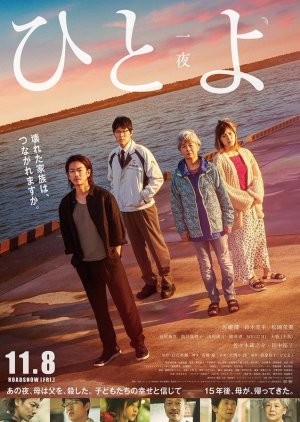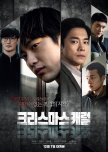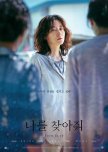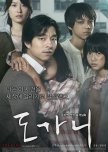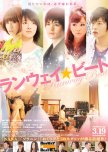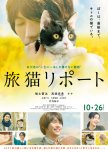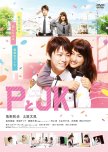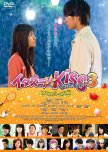
auralintensity
3 oamenii au considerat această recenzie utilă
well-produced movie about an underdeveloped story
if there's anything to love about the movie, it will be these: the depiction of siblinghood and the clever cinematography.- as the synopsis indicates, the children who grew up together and bonded over their shared abuse eventually grew apart, yuji more than the other two. we don't spend a lot of time with them when they're young, but it's not hard to see how that kind of dynamic may mature into the one they share in the movie: familiar and predisposed to trust despite their different outlooks on The Event That Changed Their Life Trajectories. the disagreeing teamwork between the three of them once they reunite brings an understated humour and lightness to the thematically heavy film, an atmosphere entirely helmed by the youngest daughter. both sato takeru and suzuki ryohei acknowledge matsuoka mayu's standout performance in grounding the otherwise melodramatic story, and i cannot overstate how her personality / their siblinghood is what carries the audience through to the end of the two hours.
- one night is set in the portside city of oarai in ibaraki, two prefectures away from central tokyo. it's not backwaters, but it's not bustling either. the movie generates the small-town feel that's necessary for the kinds of trauma that the siblings experience by focusing the setting on two main locations: the taxi company that the family owns/operates and their house, which is behind the business and connected by a little alley. the hub where the drivers wait for calls and the taxicabs themselves are important settings that evoke centrality vs reach, idleness vs transition, and intimacy vs detachment--all of which are compounded and contrasted by the fact that their /home/ is right next door. there are so many layers here i could write a disseration lol BUT i say all of that because the audience wouldn't be able to even begin to infer the emotional complexity of this setting without the camerawork and editing. the sequence where yuji comes back home is imo the most succinct example of what i'm talking about, but there were several shots in the film where the camera angles and focus and lighting just had so, so much impact on me.
if there's anything to hate about the movie, it will be these: plot holes, "b plot", and plot resolution.
- there is a glaring lack of explanation as to how/why two of the siblings stayed in contact and in oarai while only one of them is estranged and in tokyo, especially because the last time we see the three of them as youths, they are still together in a significant way. i found it hard to understand the particulars of how the other sibling's lives were affected by The Event as a result, which made their journeys to healing less interesting to me. considering it's a two hour movie, not addressing/explaining this seems like a poor use of time. (there is one specific subplot that i would gladly switch out in exchange.)
- i put "b plot" in quotes because that is probably being too generous, but there /is/ a secondary character whose character (in the personality sense) is speculated about and whose own family dynamics are explored. the film attempts to draw parallels between the character's scenario and the inamuras', but i think the execution is realllllly poor and i would want it removed completely if not for the fact that it actually plays a pivotal role in how the film ends.
- beyond this b plot and how it supports the plot resolution, the ending was weak on its own due to the aforementioned missed opportunities to set up motivations - specifically yuji's since he gets most of the attention, but really all of theirs - throughout the film.
the story is engaging enough that you'd want to finish the movie to see how it ends, but it's also unfortunately the weakest part of the film. if you're the kind of person that needs a solid story to enjoy media, one night may not satisfy you. if you're like me and quality production is enough to enjoy media, definitely give this a watch. i marked rewatch value as relatively high because there were a lot of things in the exposition that i lost/didn't realise would be important until i watched it again.
[also i'm gonna take some time to address the other reviewer's comment about the faulty story premise. police don't always arrest abusers, and they'd only know about the abuse if it were reported anyway. similarly, the hospital could only record the extent of the injuries if the children were hospitalised to begin with. speaking with a USA bias, it is unfortunately a very common circumstance that abuse is unreported and injuries are improperly treated, so i was able to accept the inamuras' circumstances rather easily. as for the mother being arrested for so long - she wasn't. she was released sooner than 15 years, but she just willingly stayed away until the 15 years she promised had passed. she lightly touches upon the various ways she bided her time during the barbecue scene, and the intentionality of the absence fuels much of the siblings' angst.]
Considerați utilă această recenzie?
Această recenzie poate conține spoilere
Domestic violence from a very Japanese POV....(?)
As the title of my review says, this movie is dealing with domestic violence and child abuse. The problem of this movie is that it does so from a very Japanese point of view and based on situations that either don't exist in reality or must be applicable only in Japan. In other words the weakest part of the movie is the plot. Spoilers ahead.The mother of three adolescent children kills her extremely violent and abusive towards them husband ( and father of these children), knowing that she is going to go to jail, in order to save them and free them from his abuse. The brutality that the father has already shown to his own children, is what justifies literally and figuratively her action.
Fifteen years later she is released from jail in order to go back and find that not all of her children appreciated her sacrifice while the family's social circle is divided. Some justify the killing of the abusive husband and some others call her a murderess and have already ostracized the murderess' children.
The problem with this situation as it is presented on the film, is that the children are shown sooo brutally and so obviously abused in the first part of the film , that makes the viewers wonder why the police didn't interfere in the first place in order to arrest the father. The children are so badly beaten up and injured that I doubt that their case wouldn't have been recorded at the hospital, that provided medical help to these children. Which in its turn raises questions about why the mother was sentenced for so many years in prison, leaving as a consequence the children on their fate to grow up with a guardian blaming their mother for what happened to them.
The acting is great the music decent but the plot that deals with such a serious matter as domestic violence, exaggerates everything up to the point of not being believable.
Unless such situations do indeed happen this way in modern Japan. Do they?
Considerați utilă această recenzie?
Această recenzie poate conține spoilere
Dysfunctional brother is more like it.
I can't understand for the life of me why Yuji played by Satoh Takeru was so harsh on his mother. Granted she killed the kids father. But i would like to think anyone would snap after seeing there kids getting beaten. Especially, as harshly as he did to them on a daily basis. A mother is either left with two choices sit back and allow it. Or she will come out like a mother bear protecting her cubs. And that's EXACTLY what this mother did. I don't condone violence of any kind or the fact that she killed another human being. But under there circumstances it was quite literally essential before there father killed one of them. It's no different than what the Menendez brothers did killing both of there parents. After YEARS of sexual and verbal abuse by there father. In that case, the mother knew what was going on but did absolutely nothing. So she was guilty by association as far as i'm concerned. It seems the hang up here lies with Yuji and he's the one who needed the counseling in order to move on. He was constantly using the word "we're or us" when the reality is it was his own personal feelings that couldn't move past what she had done to protect her children. It's a really great story about a family dynamics and the relationships we have with our parents and siblings. Especially, after something so tragic like this happens. The mother served her time, promised to return to her kids which she did. But still got blamed harshly by one of her kids for what she did. I don't know about everyone else out there. But i'd be welcoming my mother back with open arms upon her return from prison. And try my best to make up for all the lost time. By starting a new life with her without that monster of a father in the picture.Considerați utilă această recenzie?

